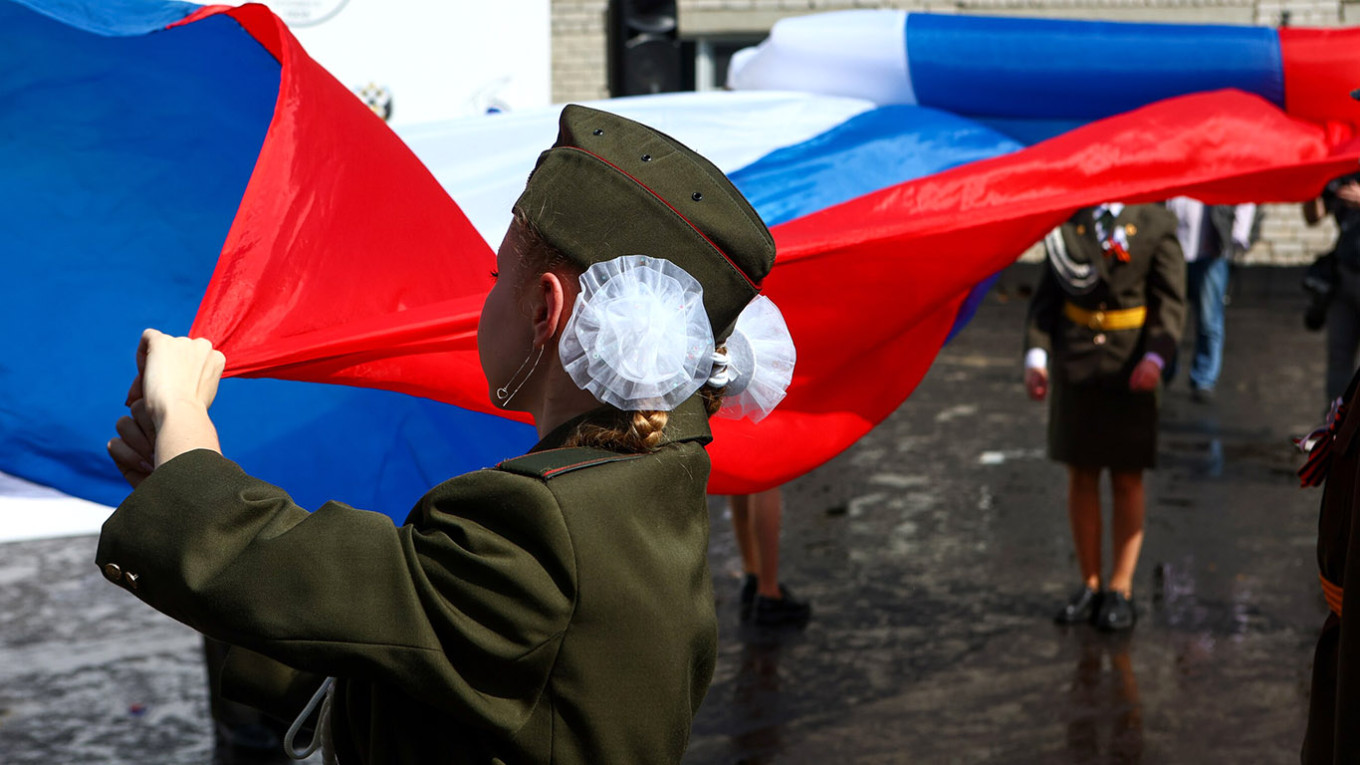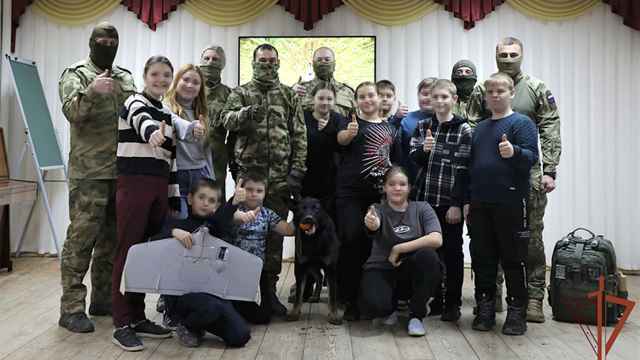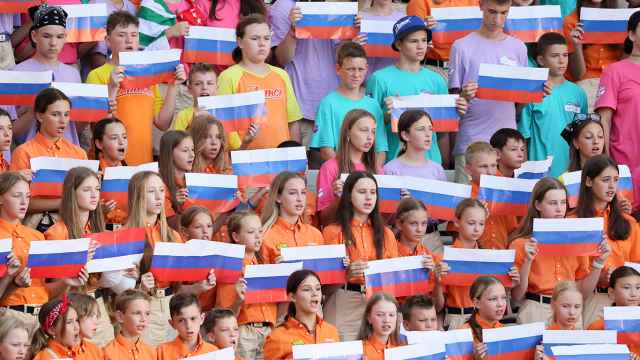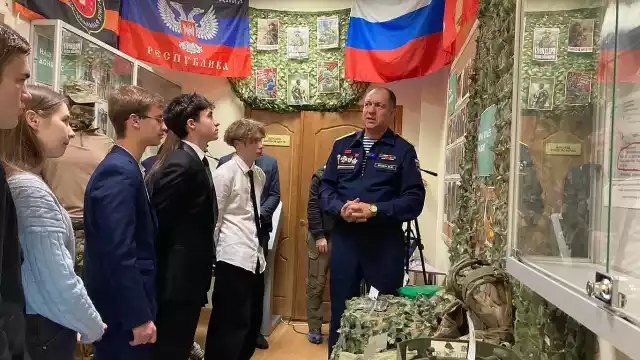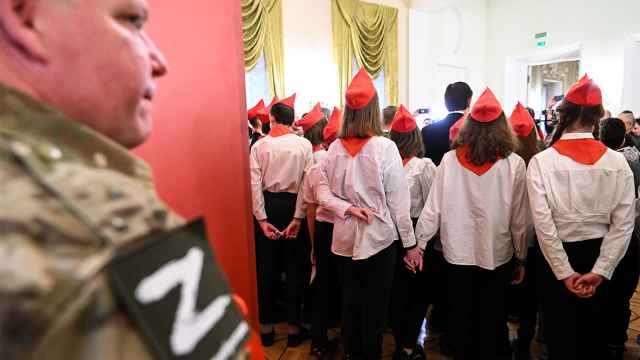The Kremlin is working to systematically instill “patriotic” values in children and teenagers through a Soviet-style propaganda campaign as it looks toward preparing the next generation for a life shaped by conflict with Ukraine and the West.
“We need warriors, gunmen, stormtroopers — those who, at the president’s first call, will rush to the military enlistment offices, not Verkhny Lars,” a Russian government official said, referring to the Russian-Georgian border crossing where tens of thousands of Russians fled the country during the fall 2022 “partial” mobilization for the war.
“And there's nothing to be embarrassed about,” he said.
The official, like others, spoke on condition of anonymity due to concerns for personal safety.
“Our Fatherland is in danger, threatened by the West and the United States. We no longer need hipsters, rappers, or lovers of Western culture — only Navalny supporters come from them,” he said.
Winning the hearts and minds of young people has been one of the Kremlin’s main domestic policy priorities since 2000, when Putin first became president. Putin’s early presidency saw the creation of state-funded youth movements championed by Kremlin ideologists such as admitted Western culture lover Vladislav Surkov and Vyacheslav Volodin.
Despite these efforts, the mass opposition protests of 2011-2012, followed by the widespread youth support for Putin’s foe Alexei Navalny up until his death this February, proved that the regime had failed to win over the younger generation.
But the full-scale invasion of Ukraine two and a half years ago renewed the government’s focus on youth indoctrination.
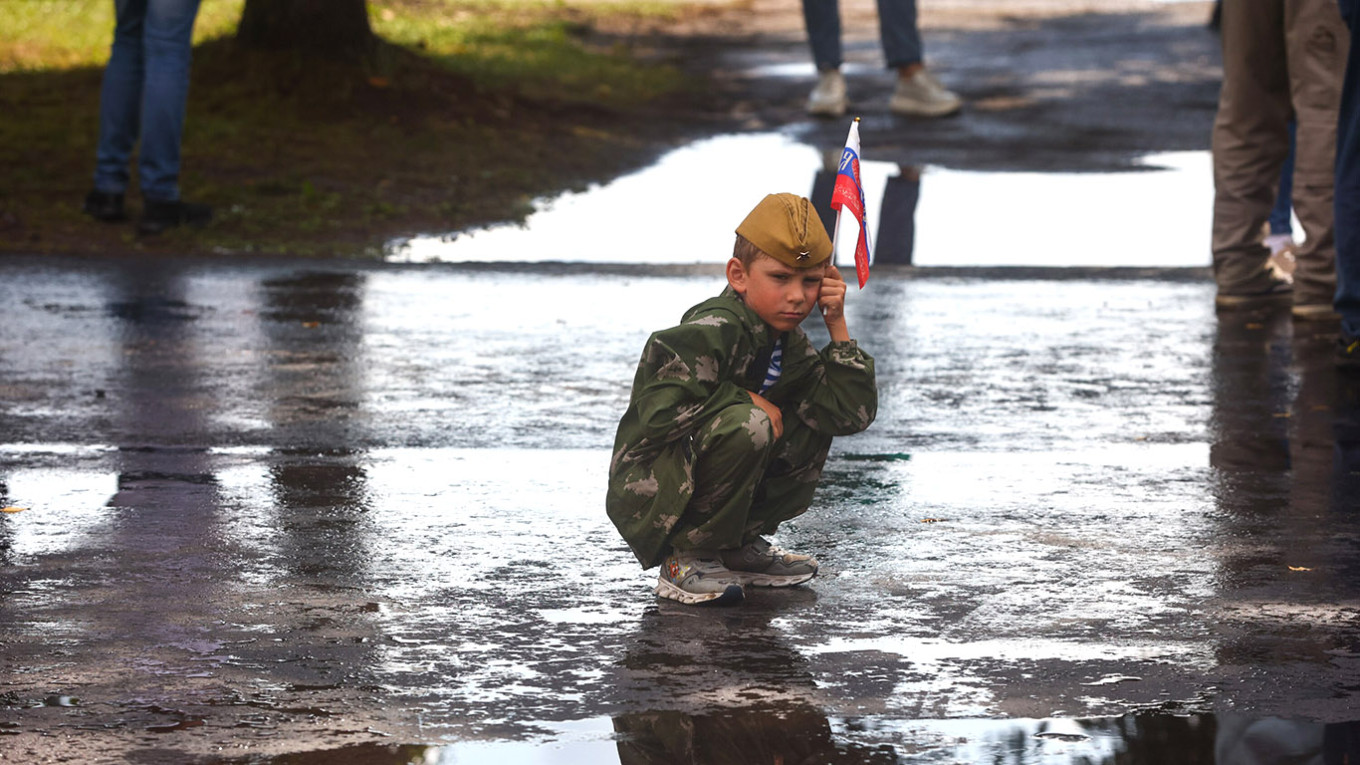
On Thursday, a draft law titled “On Systematizing the Sphere of Youth Policy” was introduced in the State Duma, Russia's lower house of parliament. The law seeks to instill “a willingness in young people to fulfill their constitutional duty to defend the Fatherland.”
In May 2022, just three months after the war began, Putin launched the “Movement of the Firsts,” modeled on the Soviet Pioneers. Schools reinstated weekly flag-raising ceremonies and anthem-singing in the fall of 2022, evoking Soviet-era rituals.
According to a source close to the Kremlin, the presidential administration is dusting off old Soviet practices and studying them closely, particularly those from the Stalinist era and afterward.
“There is no point in reinventing the wheel when we have the example of the late 1930s and the years of the Great Patriotic [War] in front of us. We are taking the practices of our fathers and grandfathers and preparing the younger generation,” the source said.
The Kremlin is now transforming Rosmolodyozh, the Federal Agency for Youth Affairs, into a vast new ideological body tasked with systematizing and unifying all youth ideological education initiatives, from kindergarten to higher education.
According to Russian media reports, the agency will receive a significant funding boost in the coming year, along with new leadership.
Although Russia’s modern Constitution prohibits the establishment of a state ideology, Rosmolodyozh will effectively function as an arm of state propaganda.
While Putin has so far resisted his associates’ calls to formally reinstate state ideology in the Constitution, he has repeatedly declared “patriotism” as the only acceptable ideology for modern Russia.
“A new Russian ideology is emerging on the front,” Valery Fadeyev, the Putin-appointed head of the presidential human rights council, said in December 2023.
“There is an obvious problem: All those who said ‘we can repeat [our World War II victory]’, who swore love for the Motherland in peacetime, have now disappeared somewhere. That is, 'patriotism' has turned out to be somehow non-functional and fake,” said exiled political analyst Abbas Gallyamov, a former speechwriter for Putin.
“The authorities have made it their task to correct this situation, to turn 'patriotism' from an abstraction into something more material — convertible into concrete units of cannon fodder. Basically, the authorities are introducing a 'patriotic KPI',” he said.
A Message from The Moscow Times:
Dear readers,
We are facing unprecedented challenges. Russia's Prosecutor General's Office has designated The Moscow Times as an "undesirable" organization, criminalizing our work and putting our staff at risk of prosecution. This follows our earlier unjust labeling as a "foreign agent."
These actions are direct attempts to silence independent journalism in Russia. The authorities claim our work "discredits the decisions of the Russian leadership." We see things differently: we strive to provide accurate, unbiased reporting on Russia.
We, the journalists of The Moscow Times, refuse to be silenced. But to continue our work, we need your help.
Your support, no matter how small, makes a world of difference. If you can, please support us monthly starting from just $2. It's quick to set up, and every contribution makes a significant impact.
By supporting The Moscow Times, you're defending open, independent journalism in the face of repression. Thank you for standing with us.
Remind me later.



